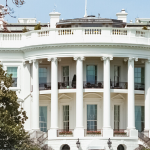America First Healthcare Executive Order on Surprise Coverage
President Trump’s “An America-First Healthcare Plan” Executive Order on Surprise Billing Policy
by Kathy Lester, J.D., M.P.H.
As the American Ambulance Association (AAA) reported yesterday, President Trump issued an Executive Order (EO) “An America-First Healthcare Plan.” The EO includes several provisions, including related to drug importation generally and for insulin specifically. It also includes statements that indicate if the Congress does not act before the end of the year, the President will have the Department of Health and Human Services (HHS) “take administrative action to prevent a patient from receiving a bill for out-of-pocket expenses that the patient could not have reasonably foreseen.” It does not mention ground ambulances.
In addition to suggesting action if the Congress does not pass legislation, the EO also states that within 180 days, the Secretary will update the Medicare.gov Hospital Compare website to inform beneficiaries of hospital billing quality, including:
- Whether the hospital is in compliance with the Hospital Price Transparency Final Rule;
- Whether, upon discharge, the hospital provides patients with a receipt that includes a list of itemized services received during a hospital stay; and
- How often the hospital pursues legal action against patients, including to garnish wages, to place a lien on a patient’s home, or to withdraw money from a patient’s income tax refund.
The narrative related to balance billing (surprise coverage) reads as follows:
My Administration is transforming the black-box hospital and insurance pricing systems to be transparent about price and quality. Regardless of health-insurance coverage, two‑thirds of adults in America still worry about the threat of unexpected medical bills. This fear is the result of a system under which individuals and employers are unable to see how insurance companies, pharmacy benefit managers, insurance brokers, and providers are or will be paid. One major culprit is the practice of “surprise billing,” in which a patient receives unexpected bills at highly inflated prices from providers who are not part of the patient’s insurance network, even if the patient was treated at a hospital that was part of the patient’s network. Patients can receive these bills despite having no opportunity to select around an out-of-network provider in advance.
On May 9, 2019, I announced four principles to guide congressional efforts to prohibit exorbitant bills resulting from patients’ accidentally or unknowingly receiving services from out-of-network physicians. Unfortunately, the Congress has failed to act, and patients remain vulnerable to surprise billing.
In the absence of congressional action, my Administration has already taken strong and decisive action to make healthcare prices more transparent. On June 24, 2019, I signed Executive Order 13877 (Improving Price and Quality Transparency in American Healthcare to Put Patients First), directing certain agencies — for the first time ever — to make sure patients have access to meaningful price and quality information prior to the delivery of care. Beginning January 1, 2021, hospitals will be required to publish their real price for every service, and publicly display in a consumer-friendly, easy-to-understand format the prices of at least 300 different common services that are able to be shopped for in advance.
We have also taken some concrete steps to eliminate surprise out‑of-network bills. For example, on April 10, 2020, my Administration required providers to certify, as a condition of receiving supplemental COVID-19 funding, that they would not seek to collect out-of-pocket expenses from a patient for treatment related to COVID-19 in an amount greater than what the patient would have otherwise been required to pay for care by an in-network provider. These initiatives have made important progress, although additional efforts are necessary.
Not all hospitals allow for surprise bills. But many do. Unfortunately, surprise billing has become sufficiently pervasive that the fear of receiving a surprise bill may dissuade patients from seeking appropriate care. And research suggests a correlation between hospitals that frequently allow surprise billing and increases in hospital admissions and imaging procedures, putting patients at risk of receiving unnecessary services, which can lead to physical harm and threatens the long-term financial sustainability of Medicare.
Efforts to limit surprise billing and increase the number of providers participating in the same insurance network as the hospital in which they work would correspondingly streamline the ability of patients to receive care and reduce time spent on billing disputes.
The AAA will continue to advocate for the resources necessary to sustain life-saving mobile healthcare.
